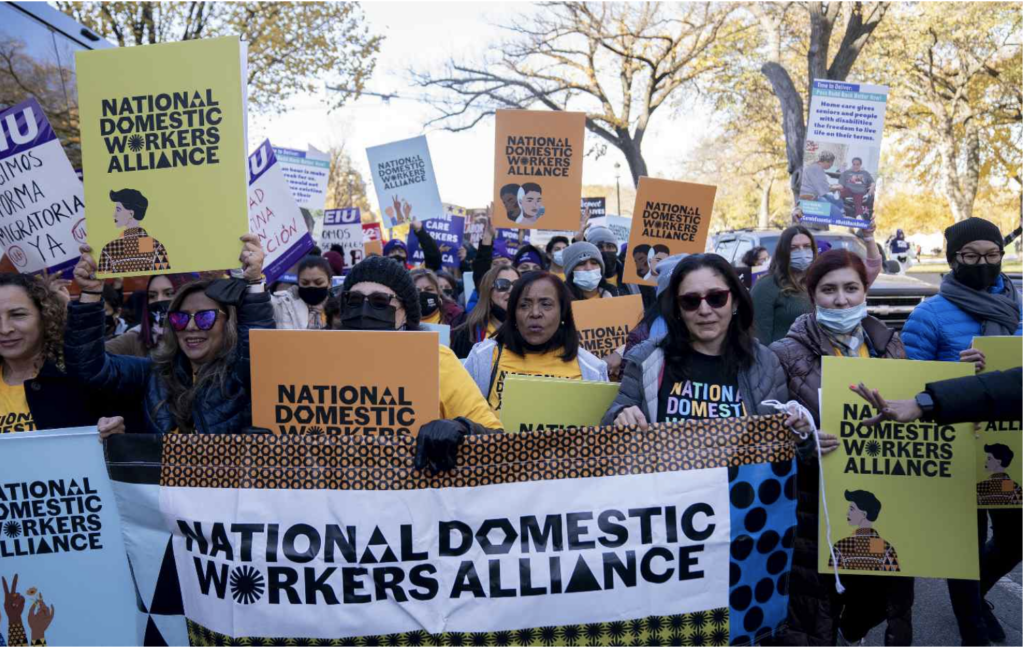September 6, 2023
Domestic Worker Bills of Rights Have Passed Across the Country. What Has Changed?
By Peter Lucas
Around 90 percent of domestic workers in Massachusetts did not seek help when their rights were violated. “If we have a law that nobody knows, that means nobody is using it.”

(Stefani Reynolds / Getty)
Around 20 years ago, Julia found a job as a nanny with what seemed to be the perfect family. Having arrived in Connecticut from Ecuador a few years earlier, she was grateful to have secured employment, and the family seemed like a particularly great match: The mother was fluent in Spanish and the kids wanted to learn it.
But soon, the job presented problems for Julia, who uses a pseudonym because of confidentiality agreements with previous employers and her immigration status. She often worked long hours on low wages. She didn’t receive overtime or lunch breaks. Family members often screamed at her. “There was no consideration of if you were human,” said Julia. “I thought, ‘Why did you give me that treatment? Why did you yell at me?’ But you cannot say all those things because you are afraid. You need that job.”
After the mother demanded that Julia start cooking for the family, which she was not comfortable with, Julia was fired. Six months later, the family asked her to come back, but having already secured another job, Julia declined. And then the family retaliated. She heard from a number of people that the family was spreading false information about her and telling other families that they shouldn’t hire her. “It was a nightmare.”


